Dear BALK,
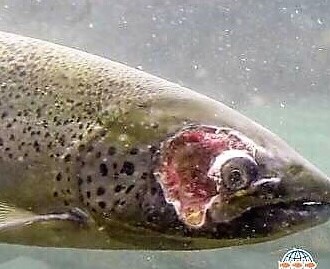
I’m glad you made it to the Wild Salmon Event and thanks for messaging.You reminded me that sometimes environmentalists are so busy, they forget to let everyone know what the basic issues are. You see, I’m not against salmon farms per se and neither are any of the speakers you heard last week.
What we are against are fish farms that are set in the ocean.
The aquaculture industry has done a good job of spreading the word that their product is ‘green’. Their websites have beautiful photos of the inlets and waters of the Broughton Archipelago where the fish farms are situated.The problem is that those pristine waters are being used as a free sewage system for their farms. The pens use the ocean currents to sweep out the feces and uneaten food to keep the fish from choking in their own waste. The fish are packed so tightly in these pens they are a breeding ground for viruses, lice and disease and are constantly re-infecting each other. They are kept alive by use of antibiotics, and pesticides and over-feeding. Their grey flesh is dyed red to make it palatable to consumers.
Here are photos of some farmed fish that are sick with viral wasting diseases, and lesions. I don’t know about you but they do not look very tasty and I definitely wouldn’t want to eat them raw!
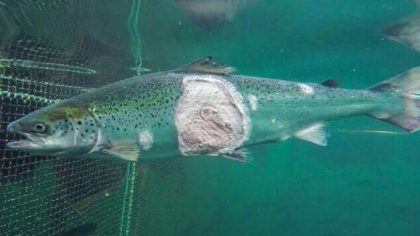
Heart and skeletal muscle inflammation (HSMI) is a disease that critically weakens farmed Atlantic salmon and reduces growth.
The disease causes lesions on the heart and makes fish lethargic, and since this disease is believed to be exacerbated by stress, wild salmon are specifically at risk. (from Sea Shepherd Facebook page)
Dear Salmon Lady,
Ugh you may be right about farmed salmon not being the best for eating BUT I thought buying farmed salmon was helping to SAVE the wild salmon because it takes pressure off the fishery! There’s not enough wild fish in our oceans anyways to feed the whole world so to me, fish farming is the only way to go.
(signed) Can’t Over Heat Oysters
Dear COHO,
Actually, COHO, open net fish farms put MORE pressure on wild salmon rather than less. The farms are placed right on the migratory paths of the young salmon as they head out to sea. The tiny baby salmon have to swim right through the muck and disease and sea lice. Unlike in a pen where a sick fish can be nursed along until it’s bonked on its head for the grocery stores, in the wild, a sick fish ends up as dinner for an orca or seal. Statistics have shown that the wild salmon populations started to crash as soon as the fish farms were put in. Remember that one year where the Fraser River sockeye returned in huge numbers? Well, four years previously, all the pens had been pulled out and left fallow because of a disease outbreak! If you want a comparison, Alaska does not allow fish farms and they regularly record great returns!
Aquaculture may bring more food to the whole world but it won’t be through farmed salmon. In order to grow this Apex (top of the food chain) animal, the industry must catch smaller fish such as anchovy and herring from all over the world. It’s as if we were farming lions and tigers to eat and having to grow cattle to feed them. That is not how you ‘feed the world’! Most of our farmed salmon, by the way, are shipped to the US which, as far as I know, is not suffering famine.
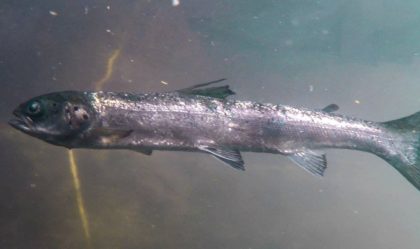
Dear Salmon Lady,
You say you aren’t against Fish Farms, so what is your solution?
(signed)
Send Urban Sassy Hipsters Information
Dear SUSHI,
I am so glad you asked SUSHI! The solution to me, is so simple it boggles the mind;
Take the fish farms out of the ocean and put them on land!
If you get the fish farms out of the ocean, it would give the wild salmon a break and a chance to recover. If the fish farms were land based, the fish farmers wouldn’t need to constantly bathe the fish in pesticides to fight sea lice, the amount of food and antibiotics would be less because they wouldn’t be swept away by currents, and any disease outbreaks could be isolated to single tanks. The farmed salmon would be healthier and safer for you and me to eat! There would be no drop in jobs either. If anything, there would be more jobs as people would be needed to maintain the tanks and further down the road, the commercial fishery could be restarted as the wild salmon populations rebounded.
The only downside to this proposal is, of course, the cost and that seems to be the only reason why the companies have been so resistant to change. Of course it will cost more to go to a tank system but then the Pacific Ocean has been used as a free sewage system for 30 years which I say is long enough!
Dear Salmon Lady,
I guess this is along the same line, but can you explain why there is such a sudden push for these land based fish farms? I mean, this has been going on for 30 years!
(signed) Wild Hairy Yeti
Dear WHY,
Good question, WHY, and yes, there is a reason behind the sudden activism of environmentalists and First Nations. The main reason is that many of the provincial leases on those fish farms are coming up for renewal in June! Unlike Washington state, which suddenly yanked the leases from their fish farms (because of the accidental release of thousands of Atlantic salmon into their waters) and is now being sued by the companies, the BC government can simply let their leases expire. Many environmentalists would like the leases canceled NOW because the migration of the baby salmon starts next month, and some fish farms are trying to pre-emptively re-stock their pens to make it harder to cancel the lease– but the expiry date does give the government some breathing room.
Thanks, Salmon Lady. You answered a lot of our questions!
Anytime!










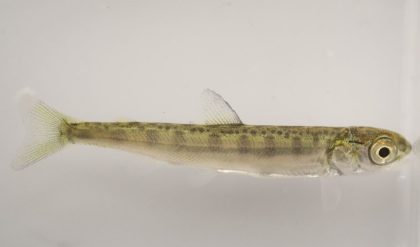

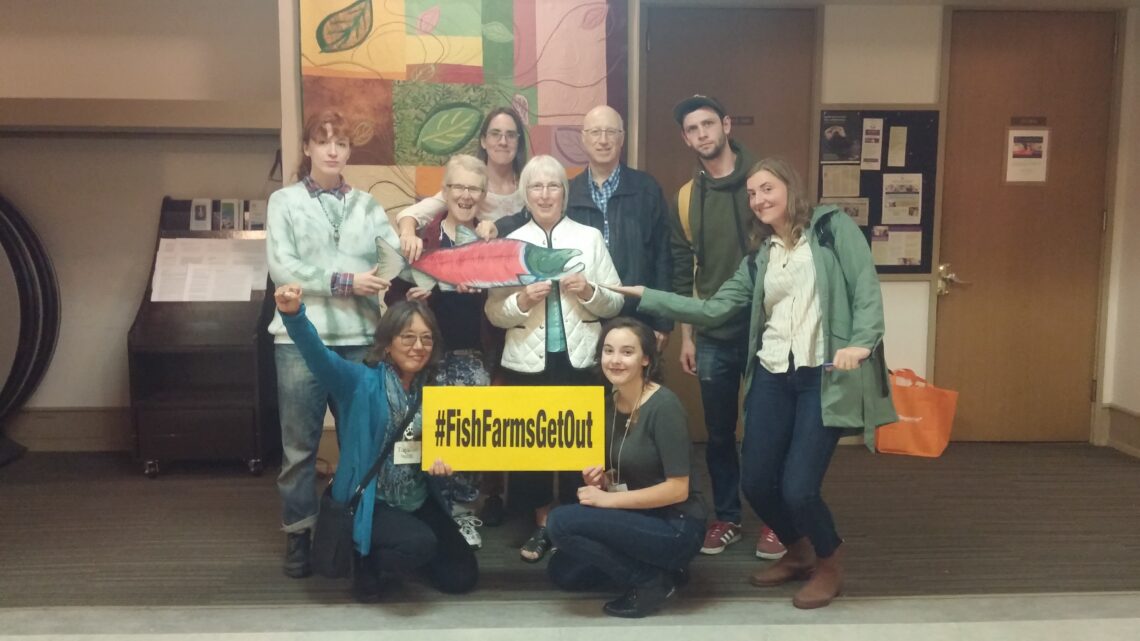










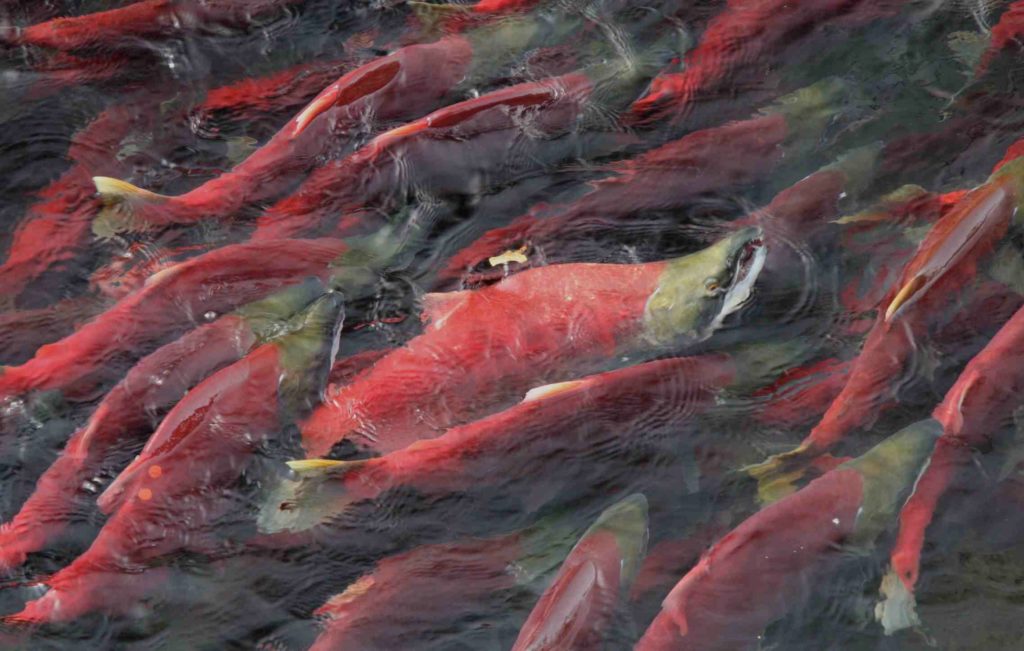

You must be logged in to post a comment.